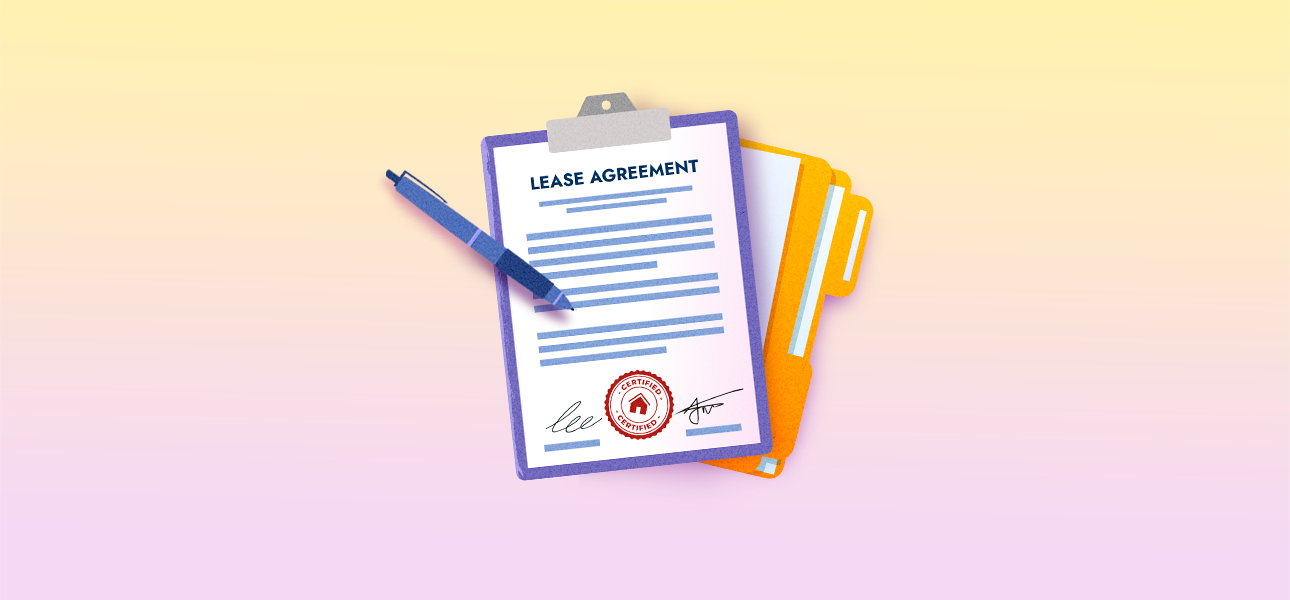
What Should a Property Owner Include in the Lease Agreement?
Understanding the critical role of a rental agreement is fundamental to fostering a harmonious relationship between a tenant and a property owner. This document goes beyond the simple transfer of property rights and serves as a tool for maintaining the value and integrity of the property.
Let's delve into the significance of a lease agreement and the vital components it should include to ensure a successful tenancy.
Table of contents
Why is a Rental Agreement Necessary?
A rental agreement serves as a pivotal element in the dynamic between a tenant and a property owner. While it may be viewed superficially as a simple formality — an instrument for transferring the rights of property use for a specified duration — It allows for detailed terms regarding aspects such as subletting, utilities usage, penalties for late rental payments, inspections, termination conditions, and other specific requirements.
At its core, a rental agreement codifies the relationship between the tenant and the landlord, setting forth the obligations and rights of each party involved. It operates as a rulebook of sorts that the tenant and landlord must comply with throughout the duration of their stay. This set of regulations provides a comprehensive framework for acceptable behavior and usage of the property, thereby safeguarding both parties from potential misunderstandings or disputes.
Within the rental agreement, the owner has the opportunity to stipulate all conditions associated with living in the property. These conditions may encompass a wide range of issues, from the upkeep of the property to noise restrictions, the allowance of pets, and procedures for rent payment, among others. By explicitly stating these conditions, the landlord can ensure that the tenant is well-informed of their responsibilities. Conversely, it also provides the tenant with a clear understanding of what they can and cannot do, thereby enabling them to make an informed decision about whether the rental conditions suit their needs and lifestyle.
What Should Be Included in the Rental Agreement?
A well-constructed rental agreement goes beyond standard legal lease requirements and incorporates specific needs and preferences of the property owner.
List of occupants and subletting possibility
The rental agreement should clearly define who will be residing in the property. Explicitly stating the occupants not only ensures that the owner has a precise understanding of who is living in their property but also provides a basis for enforcing limits on the number of inhabitants. Misunderstandings over occupancy can lead to overuse and undue wear and tear, thereby impacting the long-term value of the property.
Additionally, the rental agreement should address the subject of subletting, which is when the tenant rents out the property or a part thereof to another individual. Some property owners permit subletting, while others do not. Clear stipulations on subletting can help to prevent unauthorized use of the property.
Limits on the use of utilities
It is not uncommon for a rental agreement to include provisions related to utilities usage, especially if the property owner is responsible for covering these costs. In such cases, landlords can stipulate reasonable limits on the use of utilities such as water, electricity, gas, and internet services.
For instance, the agreement might specify that the water usage should not exceed a certain amount per month, reflecting typical usage for a household of the property's size. Similarly, restrictions could be placed on electricity usage, perhaps by specifying that the tenant cannot use equipment that consumes an excessive amount of electricity, like cryptocurrency mining hardware.
Should a tenant exceed these established limits, the agreement can provide for the tenant to cover the excess cost. This helps to encourage mindful usage of utilities and prevents potential abuses.
Penalties for late rental payments
It's essential for the lease agreement to outline penalties associated with late payments clearly.
For instance, the agreement could specify that if a rent payment is not received within five days of the due date, a late fee of a certain percentage of the rent, say 5%, would be charged. The specific percentage or amount should be substantial enough to discourage late payments, yet reasonable and within the bounds established by local laws.
Alternatively, a graduated penalty system could be used, where the late fee increases the longer the payment is overdue. For example, a 2% late fee could be assessed if the rent is five days late, increasing to 5% if the rent is ten days late, and so forth.
In addition to financial penalties, the agreement should specify the legal consequences of repeated late payments. Depending on local regulations, these might include the right for the landlord to terminate the lease or to seek eviction through the court system.
The possibility of checking the property condition during the rental period
For long-term rentals, the inclusion of a provision that allows the owner to periodically inspect the property can be a prudent step. This clause provides the owner with the opportunity to ensure that the property is being properly maintained and can help to identify any issues or damages early, preventing larger problems down the line.
Conditions for terminating the agreement
Every rental agreement should include a provision detailing the process for terminating the agreement — including such a clause can help protect the owner's interests and give the tenant clear instructions on how to proceed should the need arise.
Any other tenant obligations
The rental agreement provides an opportunity for the owner to include any other specific rental requirements or stipulations. These might relate to noise levels, maintenance tasks, pet policies, or any other particular aspect the owner deems significant. Clearly articulated expectations can reduce the risk of disputes and ensure a positive tenant-owner relationship.
By clearly stipulating all the necessary conditions and expectations, a property owner can ensure a positive, productive, and harmonious relationship with the tenant, while also preserving the value and integrity of the property. A well-thought-out rental agreement is not merely a legal formality; it is a crucial tool for risk mitigation and dispute prevention.
► Sabai Academy — a place where studying blockchain, crypto, fractional ownership, and real estate investments becomes a catalyst for capital growth!
Sabai Academy
BOOST your knowledge with our FREE crypto courses!
Related Articles

FULL GUIDE: MetaMask + Sabai

